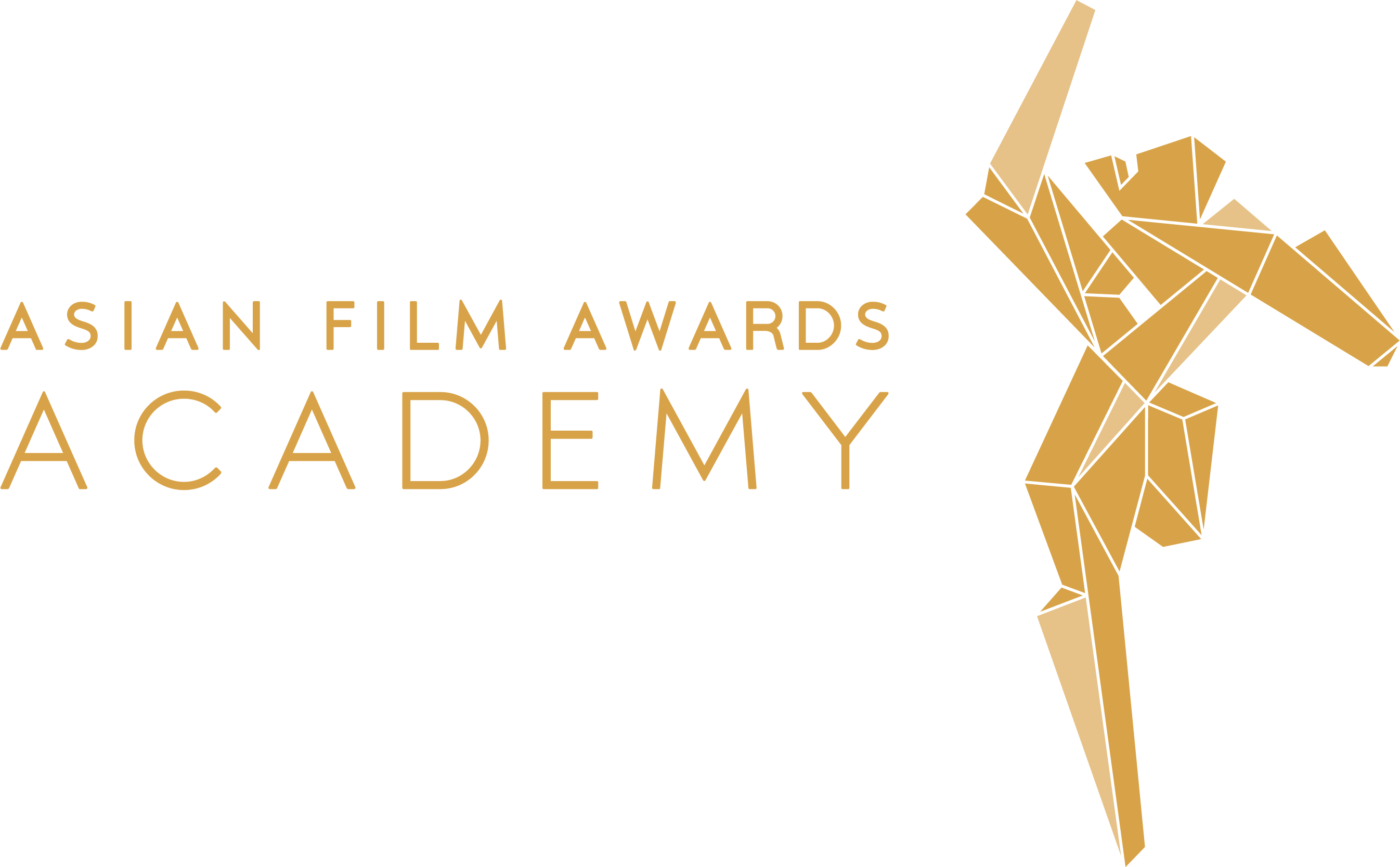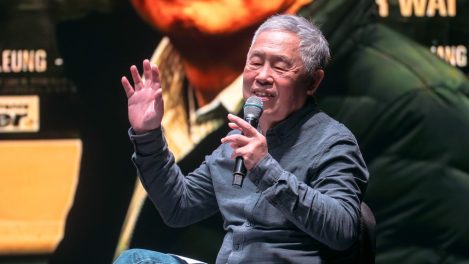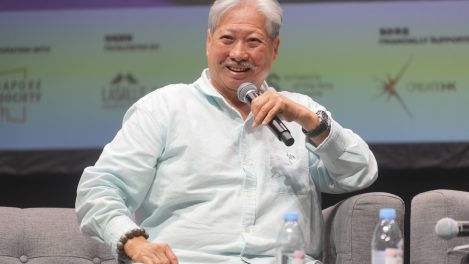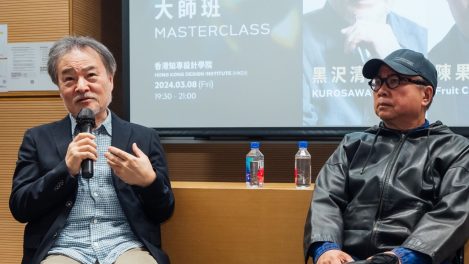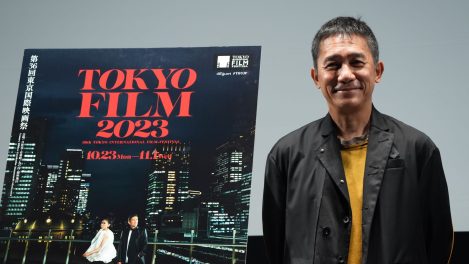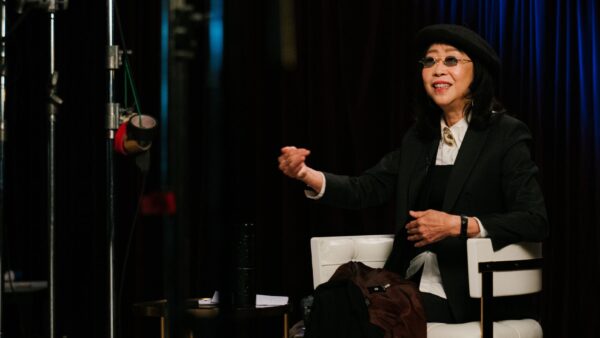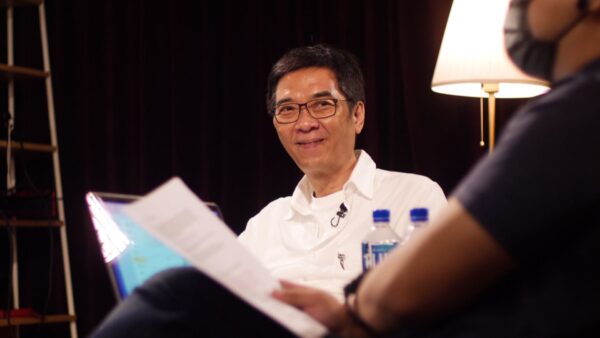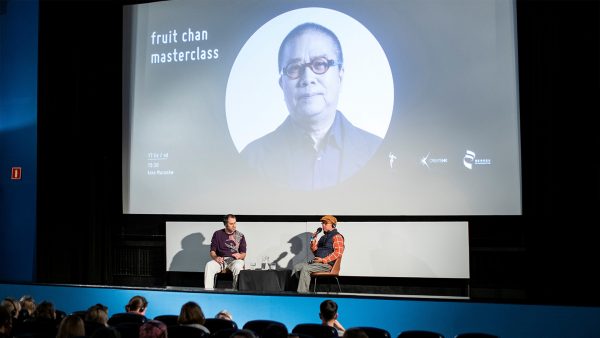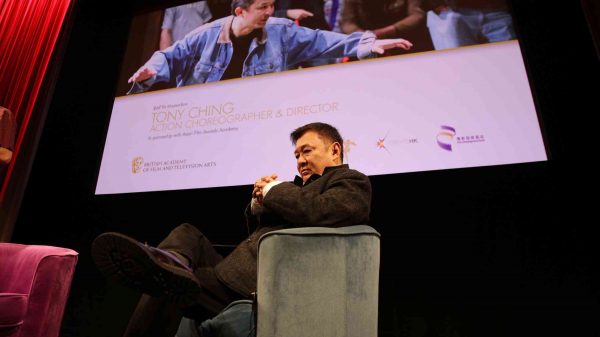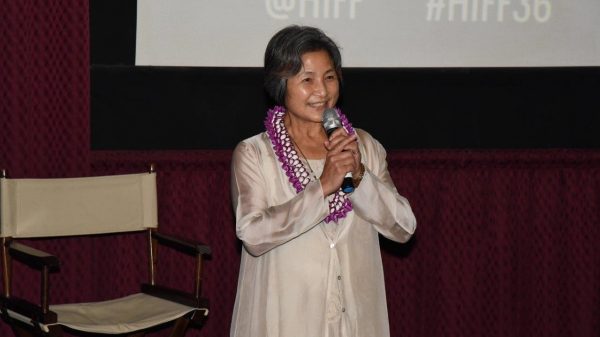Fruit Chan
Focus on Hong Kong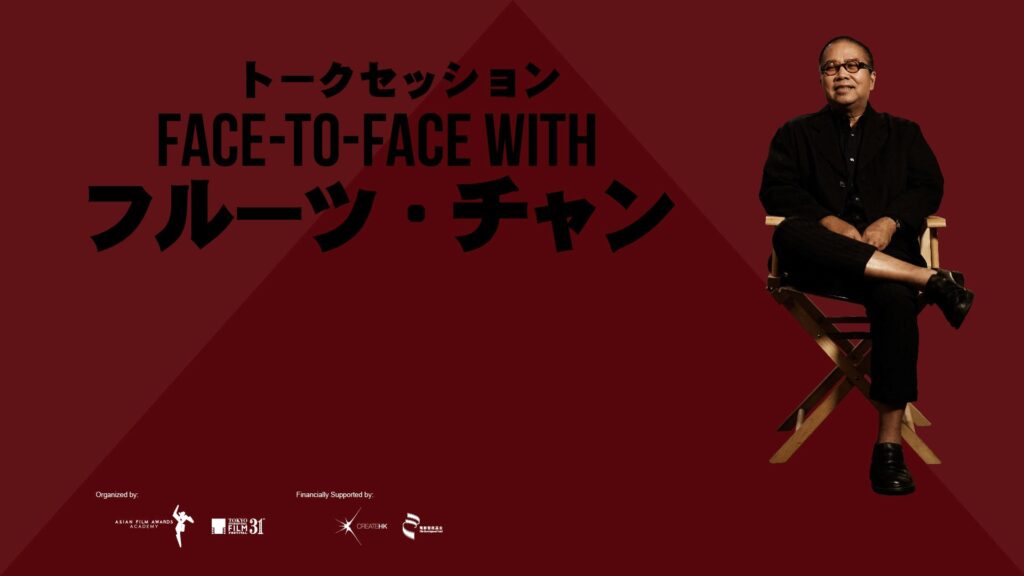
Date: 28 October 2018
Location: Tokyo (TOHO Cinemas, Roppongi Hills)
Guest: Fruit Chan, Jason Lam, Chloe Maayan
Moderator: Kenji Ishizaka
Partners: Tokyo International Film Festival
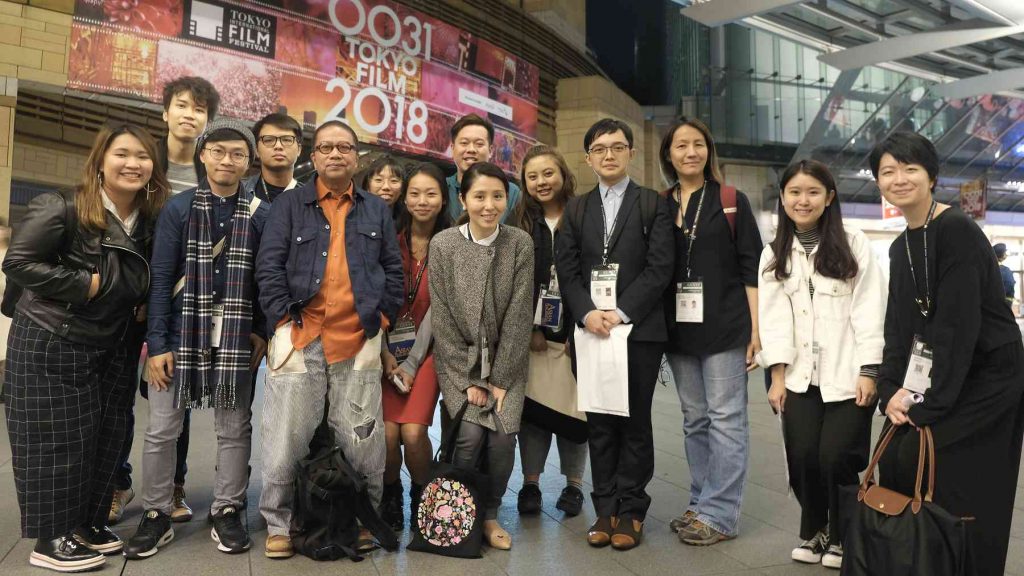
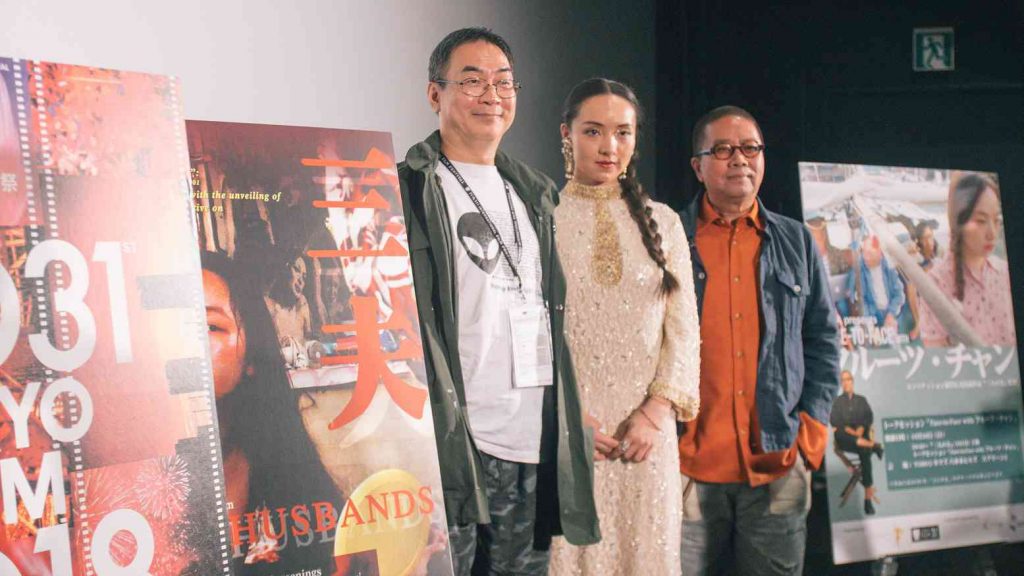
The Asian Film Awards Academy (AFAA) had present the “Face-to-Face” masterclass with veteran Hong Kong director and producer Fruit CHAN Kuo at the 31st Tokyo International Film Festival (TIFF31). Financially supported by Create Hong Kong and Hong Kong Film Development Fund.
Director CHAN is bringing his newest work, Three Husbands, to the Festival’s main competition. The film is the last installment of his “prostitute Trilogy” following Hollywood Hong Kong (2001) and Durian Durian (2000).
Three Husbands had world premiere in TIFF31 on 26 October 2018, and the “Face-to-Face masterclass is followed its second screening on 28 October at Toho Cinema Toho Cinemas Roppongi, moderated by ISHIZAKA Kenji, Asian Future Programing Director, Tokyo International Film Festival.
Fruit Chan has always been a provocative filmmaker, and is considered especially so since Hong Kong reverted to Chinese rule. His latest, Three Husbands, is in the Competition section of the 31st TIFF, and marks the final chapter of his “prostitution trilogy.” Chan decided to finally finish the trilogy after a 15-year delay, despite knowing the film’s frequent and outrageous sex scenes would surely rub authorities the wrong way.
Director CHAN is bringing his newest work, Three Husbands, to the Festival’s main competition. The film is the last installment of his “prostitute Trilogy” following Hollywood Hong Kong (2001) and Durian Durian (2000).
Three Husbands had world premiere in TIFF31 on 26 October 2018, and the “Face-to-Face masterclass is followed its second screening on 28 October at Toho Cinema Toho Cinemas Roppongi, moderated by ISHIZAKA Kenji, Asian Future Programing Director, Tokyo International Film Festival.
Fruit Chan has always been a provocative filmmaker, and is considered especially so since Hong Kong reverted to Chinese rule. His latest, Three Husbands, is in the Competition section of the 31st TIFF, and marks the final chapter of his “prostitution trilogy.” Chan decided to finally finish the trilogy after a 15-year delay, despite knowing the film’s frequent and outrageous sex scenes would surely rub authorities the wrong way.
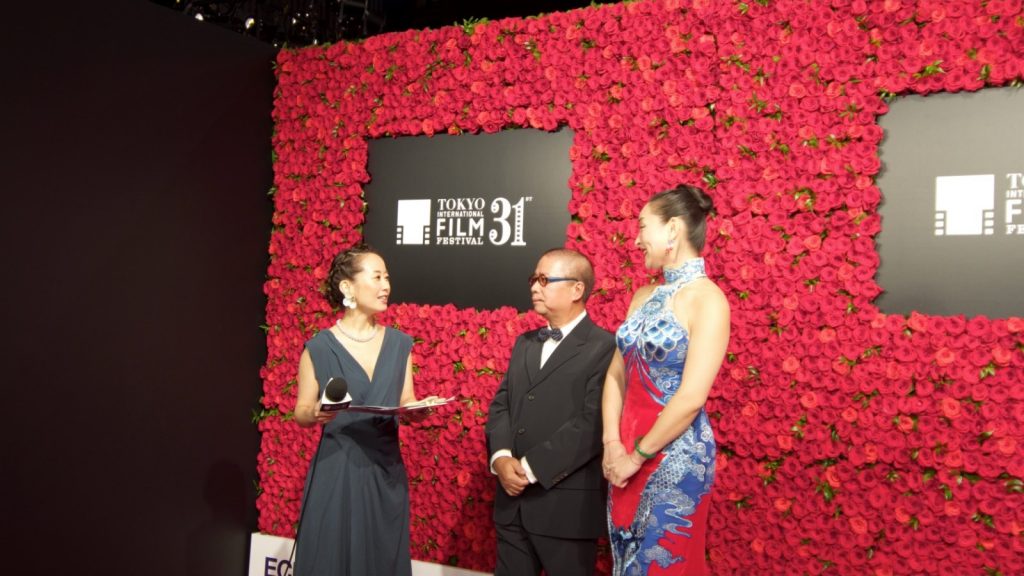

At the October 28 “Face-to-Face” masterclass for the film, not surprisingly, almost all the questions were about the sex scenes and what Chloe Maayan thought about performing them. She was suitably coy. After explaining that it was the kind of part she had always dreamed of, she said she had channeled her “childhood and my future” into the role, and now that she had “grown up in the part,” she felt a “new energy” in life.
The director was a bit more prosaic. When asked if he was equating prostitution with the kind of greed that many people think characterizes Chinese society since the capitalist opening of the 90s, he said, “Usually you link sexual greed with men, but this time I wanted to portray it from a woman’s point of view and I made sure I consulted a doctor, and he assured me that a woman’s sexual desire could be infinite.”
Apparently, the movie was made on the fly, which may explain the difficulty in nailing down a translatable theme. Co-screenwriter Lam Kee-to explained that Chan had come up with the dialogue first and then Lam “visualized” it, but the shooting script was not actually finished until the first day of shooting. Maayan didn’t even read it until the day she showed up to perform her first scene.
Naturally, some wanted to know if the film can be shown in China. Chan admitted that there was no way a movie as explicit as Three Husbands would ever be permitted in China, though he felt that may have more to do with its depiction of police than the sex. A running joke in the film is police officers showing up at various illicit places of employment and busting the people there, the idea being that the authorities would never be able to control human nature. However, Chan said it would be shown in Hong Kong “without any problem, but that it will be shown as an adult film,” because he had no intention of cutting anything.
The director was a bit more prosaic. When asked if he was equating prostitution with the kind of greed that many people think characterizes Chinese society since the capitalist opening of the 90s, he said, “Usually you link sexual greed with men, but this time I wanted to portray it from a woman’s point of view and I made sure I consulted a doctor, and he assured me that a woman’s sexual desire could be infinite.”
Apparently, the movie was made on the fly, which may explain the difficulty in nailing down a translatable theme. Co-screenwriter Lam Kee-to explained that Chan had come up with the dialogue first and then Lam “visualized” it, but the shooting script was not actually finished until the first day of shooting. Maayan didn’t even read it until the day she showed up to perform her first scene.
Naturally, some wanted to know if the film can be shown in China. Chan admitted that there was no way a movie as explicit as Three Husbands would ever be permitted in China, though he felt that may have more to do with its depiction of police than the sex. A running joke in the film is police officers showing up at various illicit places of employment and busting the people there, the idea being that the authorities would never be able to control human nature. However, Chan said it would be shown in Hong Kong “without any problem, but that it will be shown as an adult film,” because he had no intention of cutting anything.

Other Masterclass Series
TU Duu-chih
TU Duu-chih Hosts First Masterclass in Hong Kong, Exploring Sound Design Creativity and His Experience on Classic Films.
Sammo Hung
Sammo Hung traveled to Singapore to attend the "Masterclass Series" events organized by the Asian Film Awards Academy, including screenings of two of his self-written and directed films — “Warriors Two” and "The Bodyguard,” a press conference, and the highlight, a masterclass session.
Kurosawa Kiyoshi x Fruit Chan
Renowned thriller master KUROSAWA Kiyoshi and Hong Kong’s independent film pioneer Fruit CHAN shared their creative philosophies and cinematic insights during the AFA17 Featured Programmes Masterclass.
Tony Leung
Hong Kong actor Tony Leung shared insights from his career with the Japanese audience at the Masterclass series at the Tokyo International Film Festival.
Mabel Cheung
Mabel Cheung created stories with historical significance. Her career as an influential director, had been shared during the Masterclass.
Stanley Kwan
A wonderful opportunity for a deepdive to the films of a renowned Hong Kong director, Stanley Kwan.
Fruit Chan
Fruit CHAN have distinguished his work as one of Hong Kong’s internationally recognized directors.
Fruit Chan
The “Face-to-Face” Masterclass with veteran Hong Kong director and producer Fruit CHAN Kuo at the 31st Tokyo International Film Festival.
Tony Ching Siu Tong
The masterclass had examine Tony Ching Siu Tong’s pioneering style of cinematic martial arts and the action-fantasy genre of Chinese filmmaking.
Cheng Pei Pei
Cheng Pei Pei had share her illustrious life as an actress on the world stage and as the first woman wuxia/action star in film history in the Masterclass.
